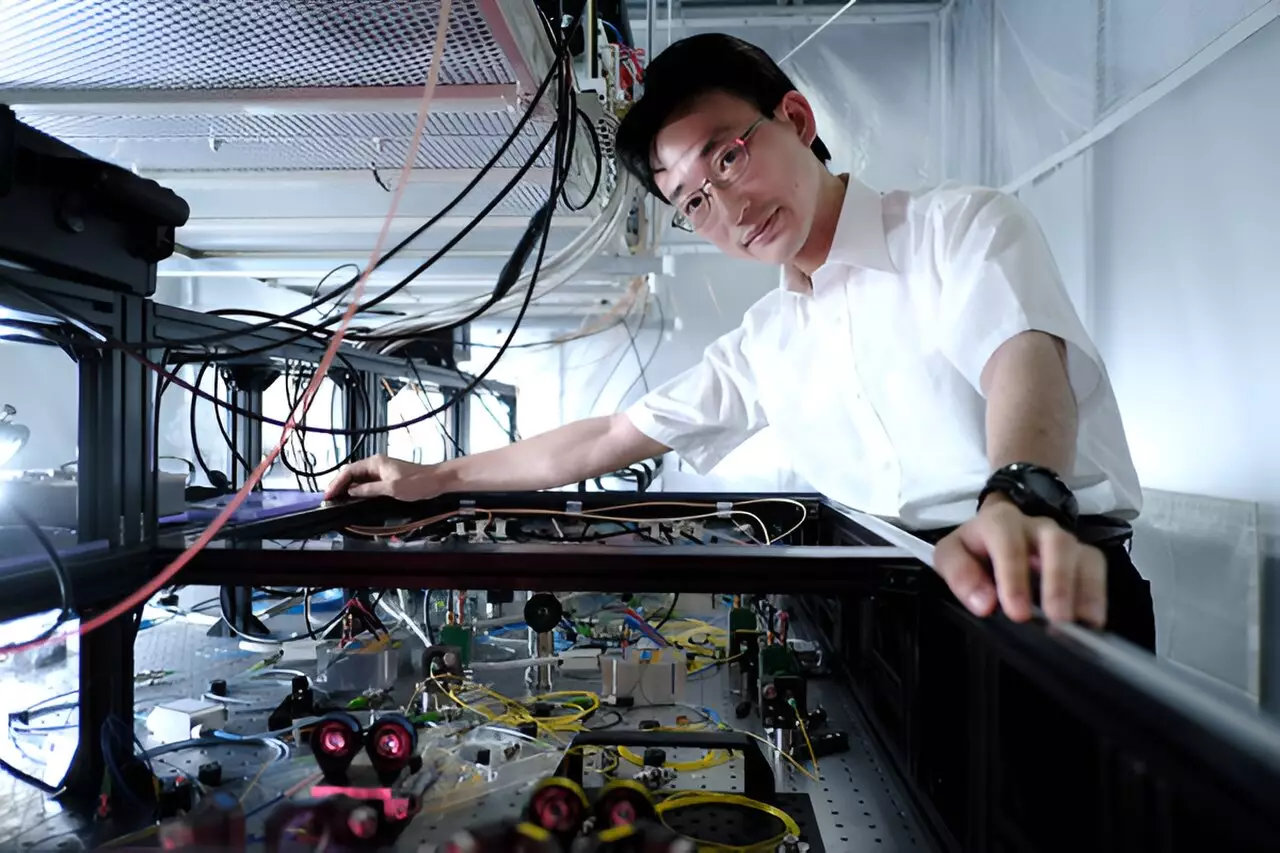The race to develop quantum computers has been gaining momentum in recent years. Quantum computers, which utilize the principles of quantum mechanics to perform complex computations, hold the promise of revolutionizing various fields, from cryptography to drug discovery. While much of the focus has been on gate-based quantum computers, the Optical Quantum Computing Research Team at the RIKEN Center for Quantum Computing has been pursuing a different approach: measurement-based quantum computing.
Unlike gate-based quantum computers that rely on physical components like superconducting circuits, measurement-based quantum computers process information using cluster states and entanglement. A cluster state is a complex quantum state consisting of linked qubits, while entanglement refers to the phenomenon where the properties of two or more quantum particles remain correlated, even when separated. Measurement-based quantum computers make measurements on the qubits in a cluster state to determine subsequent measurements, enabling the implementation of quantum gates and circuits.
Measurement-based quantum computing offers several advantages over gate-based approaches, especially when applied to optical quantum computers. Optical systems are well-suited for entangling a large number of quantum states, making measurement-based quantum computers potentially more scalable. Additionally, measurement-based schemes offer programmability in optical systems, allowing for easier modifications of operations compared to hardware-based changes required for gate-based systems.
The Optical Quantum Computing Research Team, in collaboration with other institutions, has recently made significant progress in the field by demonstrating nonlinear feedforward in measurement-based quantum computing. Nonlinear feedforward is crucial for implementing a wider range of potential gates in optics-based quantum computers. The team achieved this through the use of complex optics, special electro-optic materials, and ultrafast electronics. They utilized digital memories to precompute and record the desired nonlinear functions needed for the feedforward operation.
The implementation of nonlinear feedforward brings forth notable benefits, particularly in terms of speed and flexibility. The process needs to be fast enough to synchronize the output with the optical quantum state. With the successful demonstration of nonlinear feedforward, the team aims to apply this technique to practical measurement-based quantum computation and quantum error correction. Additionally, they seek to further increase the speed of nonlinear feedforward for high-speed optical quantum computation.
While superconducting circuit-based approaches remain popular in the development of quantum computers, the achievements in measurement-based quantum computing highlight the promising potential of optical systems. Optical quantum computers, which utilize qubits made of light wave packets, offer a unique avenue for realizing the power of quantum computing. The speed, scalability, and programmability offered by optical systems make them strong contenders for quantum computer hardware.
The advancements made by the Optical Quantum Computing Research Team and their collaborators in measurement-based quantum computing, specifically in nonlinear feedforward, mark a significant step forward in the field of quantum computing. These developments open up new possibilities for optical quantum computers and their potential applications. With further research and refinement, measurement-based quantum computing could play a vital role in the realization of practical and efficient quantum computers that can tackle complex computational problems with unprecedented speed and precision.


Leave a Reply